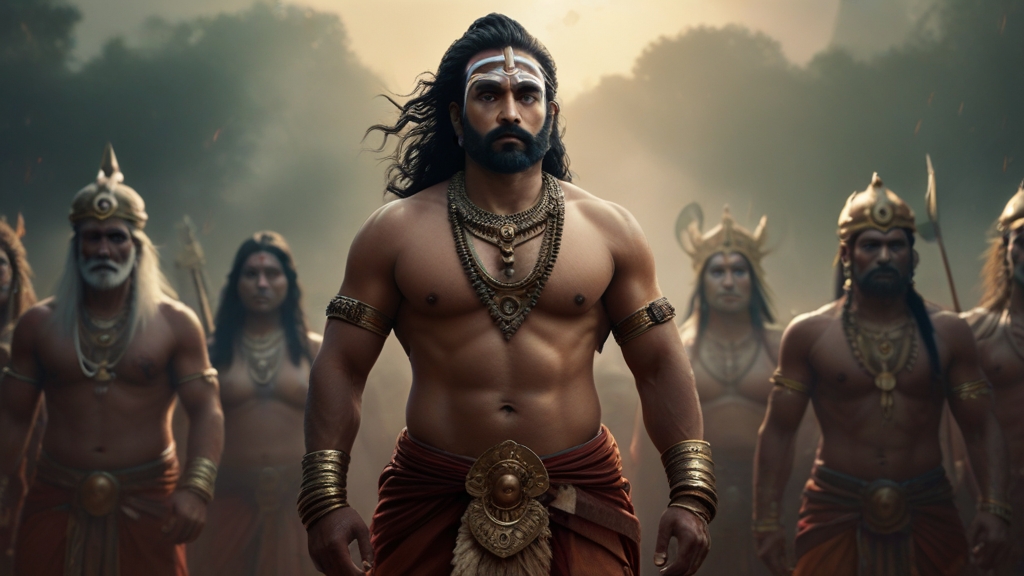The ancient Indian epic Mahabharata is a masterpiece that explores complex themes of dharma (duty), artha (purpose), kama (desire), and moksha (spiritual liberation). At its core, it’s a gripping tale of a dynastic struggle between two groups of cousins – the Pandavas and the Kauravas.
While the epic offers profound insights into various aspects of life, it is particularly rich in decision-making wisdom. The characters face numerous moral dilemmas, ethical quandaries, and strategic crossroads that force them to make tough choices.
In this blog post, we’ll explore some powerful decision-making lessons from the Mahabharata that are still relevant today.
Lesson 1: Seek Wise Counsel
Throughout the epic, we see the importance of seeking advice from knowledgeable and experienced individuals. For instance, when Arjuna faces a crisis of conscience on the battlefield of Kurukshetra, he turns to Lord Krishna for guidance.
Krishna’s immortal teachings, the Bhagavad Gita, help Arjuna gain clarity and make the right decision.
Key Takeaway: When faced with a difficult decision:
- Identify individuals with relevant expertise and experience
- Seek their counsel with an open mind
- But ultimately, make the choice that aligns with your values and circumstances
Lesson 2: Consider Long-Term Consequences
One of the central themes of the Mahabharata is the idea of karma – the principle that our actions have consequences that extend far into the future. Many characters, including the great warriors Bhishma and Drona, face situations where they must choose between short-term gains and long-term implications.
Key Takeaway: When making a decision:
- Don’t just look at the immediate effects
- Consider the potential long-term ramifications
- Choose the path that leads to the greatest good for all in the long run
Lesson 3: Stay Grounded in Your Values
The Pandavas and their allies frequently encounter ethical dilemmas where they must choose between adhering to their dharma (moral duty) or compromising their values for perceived gains. Ultimately, characters like Yudhishthira and Arjuna stay true to their principles, even when it’s the more difficult path.
Key Takeaway: When faced with an ethical decision:
- Identify your core values and principles
- Carefully consider which option best upholds those values
- Have the courage to make the ethical choice, even if it’s challenging
Lesson 4: Adapt to Changing Circumstances
The Mahabharata is a tale of constantly shifting fortunes, where characters must adapt their strategies and decisions to dynamic circumstances. The Pandavas, for instance, must repeatedly adjust their approach as they go from princes to forest dwellers to warriors.
Key Takeaway: When making decisions:
- Remain flexible and open to change
- Continually reassess your situation and options
- Adapt your strategy as circumstances evolve
Lesson 5: Learn from Mistakes
Even the noblest characters in the Mahabharata make mistakes in their decision-making process. However, what sets them apart is their willingness to learn from those errors. Arjuna, for example, learns from his lapse in judgment during the climactic battle and becomes a wiser leader.
Key Takeaway: When you make a poor decision:
- Acknowledge and take responsibility for your mistake
- Reflect on what went wrong and why
- Use those lessons to make better choices in the future
TL;DR
The Mahabharata is a profound exploration of decision-making that offers valuable wisdom:
- Seek wise counsel, but make your own choices
- Consider long-term consequences, not just short-term gains
- Stay grounded in your core values and principles
- Adapt your approach as circumstances change
- Learn from mistakes to make better future decisions
Q&A
Q: Why is the Mahabharata still relevant for decision-making today?
A: While the Mahabharata is an ancient text, the situations and dilemmas its characters face are remarkably similar to modern decision-making challenges. The epic forces us to grapple with questions of ethics, strategy, and long-term impacts – issues that remain highly relevant in our personal and professional lives.
Q: How can I apply these lessons to my own life?
A: The key is to approach decision-making with intentionality and mindfulness. Seek input from trusted sources, carefully consider potential consequences, stay true to your values, adapt as needed, and constantly strive to learn and grow from your experiences.
Q: What’s the most important lesson from the Mahabharata?
A: While all the lessons are valuable, if I had to pick one, it would be staying grounded in your core values and principles (Lesson 3). When we lose sight of our moral compass, even well-intentioned decisions can lead us astray. Characters like Yudhishthira and Arjuna show us the power of upholding our dharma, even in the face of adversity.





